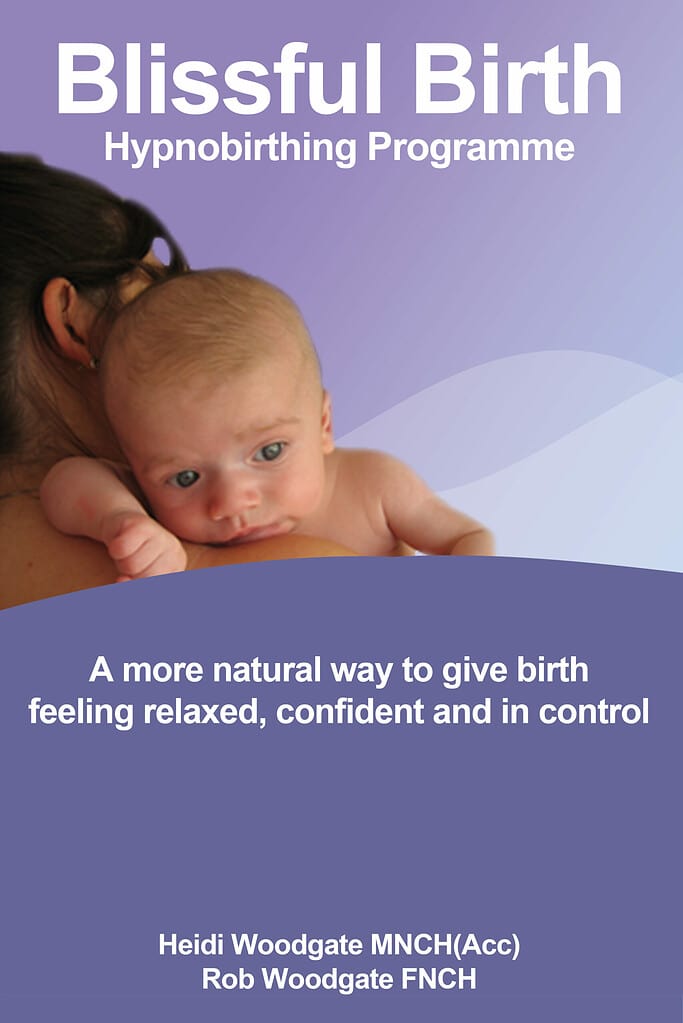Emergen-C, a popular vitamin C supplement, is often taken to boost immunity, especially during cold and flu seasons.
The primary ingredient in Emergen-C is vitamin C, supplemented with other antioxidants like manganese, zinc, B vitamins, and electrolytes.
But can you take Emergen C while pregnant? That’s what this article will answer.

Table of Contents
Quick Answer
The general consensus is that Emergen-C is safe to take during pregnancy, because vitamins B and C are both water-soluble, meaning any excess is naturally excreted.
However, as Emergen-C contains ten times the daily Vitamin C recommended during pregnancy, you are recommended to consult with a healthcare provider before making any decisions about its consumption during pregnancy.
The recommended daily intake of Vitamin C in pregnancy is 105 mg in the EU, and 85 mg in the United States, which can be achieved with an intake of 5 portions of fruit and vegetables per day.[1]
H2: What Is Emergen-C?
Emergen-C is a dietary supplement primarily known for its high vitamin C content.
Marketed as an immune system booster, it comes in the form of a fizzy powder designed to be mixed with water and consumed as a drink. Each packet of Emergen-C contains a significant dose of vitamin C (around 1,000 mg), making it a go-to choice for many individuals seeking to enhance their vitamin C intake.
But vitamin C isn’t the only component of Emergen-C. The supplement also boasts a mix of other antioxidants, such as manganese and zinc.
Additionally, it contains a range of B vitamins and electrolytes, which can be beneficial for overall health and energy levels.
The original Emergen-C formula was introduced with an orange flavor, emphasizing its vitamin C content. However, over the years, the brand has expanded its range, offering a variety of flavors to cater to different taste preferences.
Many people turn to Emergen-C at the first signs of a cold, during travel, or when they’ve been around others who are sick. Some also opt to take it during the winter months for added vitamin C, especially when spending more time indoors.
It’s worth noting that while many individuals swear by the benefits of Emergen-C, there are limited studies specifically testing its effectiveness. However, research on vitamin C has shown potential benefits in reducing the duration and severity of cold symptoms.
Safety of Emergen-C During Pregnancy
Pregnancy is a time of heightened awareness and caution, with expectant mothers often scrutinizing everything they consume. So, when it comes to supplements like Emergen-C, safety is paramount.
Emergen-C, with its high vitamin C content, might seem like a beneficial choice for boosting immunity during pregnancy. But is it safe?
The World Health Organization (WHO) does not recommend widespread vitamin C supplementation during pregnancy.
This doesn’t imply that vitamin C is harmful during pregnancy, but rather that there isn’t enough evidence to suggest that the benefits outweigh potential risks.
For adults, the tolerable upper intake level for vitamin C is set at 2,000 mg daily. To put this in perspective, one packet of Emergen-C contains half of this amount.
While side effects from excessive vitamin C intake are rare, they can include gastrointestinal issues such as diarrhea. Therefore, while occasional use of Emergen-C might be considered safe, frequent consumption is not advised.
It’s essential to remember that every pregnancy is unique. Factors like individual health, dietary habits, and other supplements or medications can influence how one might react to additional vitamin C intake.
As a result, it’s always recommended to consult with a healthcare provider before deciding to take Emergen-C or any other supplement during pregnancy, as they can provide guidance tailored to individual circumstances.
Precautions and Side Effects
Taking any supplement during pregnancy requires a careful approach, and Emergen-C is no exception. While it offers potential benefits, there are also precautions and side effects to consider:
Upper Intake Limit
The tolerable upper intake level for vitamin C in adults is 2,000 mg daily. Given that one packet of Emergen-C contains around 1,000 mg, it’s essential to be cautious about consuming multiple packets or combining it with other vitamin C-rich foods and supplements.
Gastrointestinal Issues
Consuming high doses of vitamin C can lead to stomach upset, diarrhea, or nausea. If you experience any of these symptoms after taking Emergen-C, it’s advisable to reduce the dosage or discontinue use.
Potential for Overconsumption
Emergen-C contains not only vitamin C but also other vitamins and minerals. Overconsumption can lead to exceeding the recommended daily intake of these nutrients, which might have adverse effects.
Interactions with Medications
Vitamin C can interact with certain medications, including some used to treat cancer or HIV. If you’re on any medications, it’s crucial to consult with your healthcare provider before taking Emergen-C.
Allergic Reactions
While rare, some individuals might be allergic to ingredients in Emergen-C. Always check the ingredient list and be aware of any known allergies.
Artificial Ingredients
Some versions of Emergen-C may contain artificial flavors or sweeteners. If you’re trying to avoid these additives during pregnancy, it’s essential to read the product label carefully.
In conclusion, while Emergen-C can be a helpful supplement, especially for boosting immunity, it’s vital to use it responsibly.
The Benefits Of Vitamin C
Vitamin C, also known as ascorbic acid, is an essential nutrient that plays a vital role in various bodily functions. Its importance becomes even more pronounced during pregnancy, given the increased nutritional demands of both the mother and the developing fetus.
Collagen Production
Vitamin C is crucial for the synthesis of collagen, a protein that helps form the skin, tendons, ligaments, and blood vessels. This is especially important during pregnancy as the body undergoes significant changes, and the fetus develops its own collagen structures.
Antioxidant Properties
Vitamin C acts as a powerful antioxidant, protecting cells from damage caused by free radicals. This is essential for maintaining overall health and preventing oxidative stress during pregnancy.
Enhanced Iron Absorption
As mentioned earlier, vitamin C can enhance the absorption of non-heme iron, the type of iron found in plant-based foods. This is particularly beneficial during pregnancy, where iron demands increase to support the growing fetus and placenta.
Immune System Support
A robust immune system is vital during pregnancy to protect both the mother and the fetus from infections. Vitamin C supports the immune system by promoting the production and function of white blood cells.
Wound Healing
The healing of wounds and scars is accelerated with adequate vitamin C levels. This can be beneficial post-delivery, especially if there are surgical incisions from a cesarean section.
Prevention of Low Birth Weight
Some studies suggest that adequate vitamin C intake during pregnancy might reduce the risk of delivering a baby with a low birth weight.
While vitamin C has numerous benefits, it’s essential to consume it in the right amounts. The recommended daily intake of vitamin C during pregnancy is about 85 mg, with an upper limit of 2,000 mg.
Consuming vitamin C primarily from natural food sources like citrus fruits, strawberries, bell peppers, and broccoli is ideal. However, if supplements are considered, it’s crucial to consult with a healthcare provider to ensure safe and appropriate dosages.
Is It Safe to Take Mucinex While Pregnant?
Is it safe to take Mucinex while pregnant? According to mucinex and pregnancy guidelines, it is generally considered safe to use Mucinex during pregnancy. However, it is always advisable to consult with a healthcare provider before taking any medication while pregnant, as they can provide personalized advice and guidance based on your specific situation.
Consultation with Healthcare Providers
The journey of pregnancy is unique for every individual, and while general guidelines and recommendations exist, personal circumstances can vary widely. This is why consultation with healthcare providers becomes paramount, especially when considering supplements like Emergen-C.
- Personalized Recommendations: Every pregnancy is different, and factors like pre-existing health conditions, dietary habits, and other medications or supplements can influence recommendations. A healthcare provider can offer advice tailored to an individual’s specific situation.
- Risk Assessment: While many supplements, including Emergen-C, are generally considered safe, there’s always a potential risk associated with any product. A healthcare provider can assess these risks in the context of an individual’s health and the health of the fetus.
- Monitoring and Follow-Up: If a decision is made to take Emergen-C or any other supplement during pregnancy, regular check-ups and monitoring become essential. This ensures that any potential side effects or complications are detected early and addressed promptly.
- Alternative Recommendations: In some cases, a healthcare provider might suggest alternative products or solutions that might be more suitable during pregnancy. This could include other vitamin C sources or different supplements altogether.
- Open Communication: It’s essential to maintain open communication with healthcare providers throughout the pregnancy journey. If any concerns or questions arise, they should be the first point of contact.
Conclusion
Pregnancy is a transformative journey, filled with excitement, anticipation, and naturally, a myriad of questions about what’s best for both mother and baby. When it comes to supplements like Emergen-C, the primary concern is always safety and well-being.
The role of vitamin C during pregnancy is undeniably important, supporting functions like collagen production, wound healing, and fetal development. Yet, guidelines recommend this vital vitamin be obtained from food sources, not supplementation.
So while Emergen-C can be a part of a pregnant individual’s regimen, it should be taken judiciously and always under the guidance of a healthcare provider.




